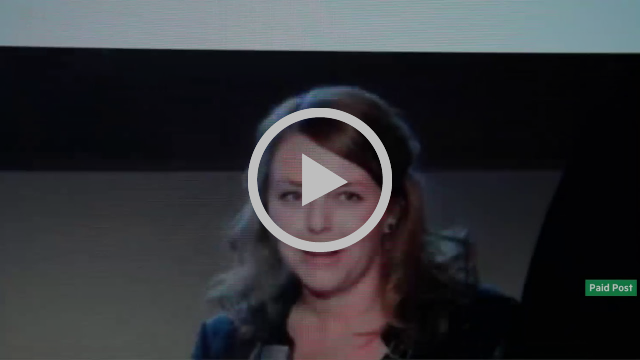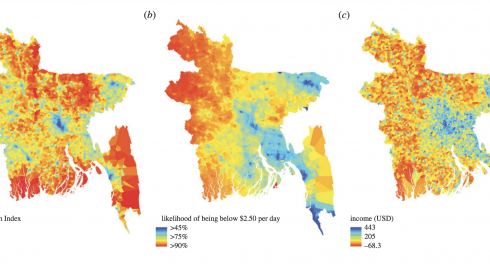Highlights:
- Data representation
- Staying in the club (for now)
- A song too far
- The neverending game of “whack-a-mole”
- Unwritten value
In case you missed it…
Data representation
 Photo: Pexels
Photo: Pexels
Last week, TAI Weekly covered sexist data. This week we are glad to celebrate some signs of moves to true gender representation in data generation and use. The Extractive Industries Transparency Initiative (EITI) for one has some big decisions on the agenda again – upcoming Board discussions on environmental reporting and pushing gender dimensions to EITI data. The latter is part of a broader “awakening” of multi-stakeholder initiatives to gender issues. Gender will be a lead theme for this May’s Open Government Partnership Global Summit and the EITI board will be debating steps it can take to incorporate a long-needed gender lens to its data generation and use. Rebecca Iwerks lays out some ideas for their consideration and Charlotte Ornemark details what’s already happening to show value of gendered approaches in West Africa
Of course, a bigger win would be for gender dimensions to be embedded in national statistics from the very start. How much of a pipedream is that? What data do decision makers use and what incentives, constraints, and opportunities contribute to that use? You may get some insight from talking to Development Gateway who reflect on the common needs and opportunities surfaced across 2 years of working on data ecosystems in 7 countries.
Perhaps one way to improve data representation is through data collaboratives. However, actors often face inefficiencies in developing contractual data sharing agreements. A new initiative wants to change that and is seeking to strengthen trust, transparency, and accountability in data collaboratives.
More and more ideas are emerging testing the potential for harnessing machine learning and satellite imagery for public good – this time to infer signs of modern slavery that has been all too hidden to date.
With IATI recently celebrating its ten-year anniversary, have your say in an online consultation around essential priorities for the initiative’s next three years. How to keep IATI relevant and reinforce cooperation on data standards?
Essential Watching

Journalists at Dusseldorf newspaper Rheinische Post use an innovative suite of tools to identify breaking stories by closely monitoring online chatter. Watch here.
Staying in the club (for now)
Better Late than Never – the US got out its Fourth National Action Plan. Lots of Twitter discussion on its merits followed. Certainly, the plan may not be the most ambitious (to say the least), but worth lauding those hard-working State Department staff who got it approved. And there are worthwhile commitments in the plan, including increasing public access to federal-funded research results and incorporating privacy and civil liberties requirements into intelligence community policy and programs. Check out the plan for yourself here.
A song too far
To understand the drivers and the scope of the problem facing civil society actors in so many parts of the world check out Amnesty International’s new report. A long and growing list of countries are relying on repressive laws and arbitrary restrictions to stop non-governmental organizations from doing vital work. Might the upcoming Human Rights Council’s 40th Session offer tangible solutions on protection of freedom of expression globally? Perhaps, but don’t hold your breath.
Meanwhile, repressive actions continue. In Turkey, there is the prosecution of 16 civil society, media and business leaders. In Uganda, CSOs are calling upon the resignation, arrest and prosecution of Uganda Ambassador to Burundi, Rt. Maj. Gen. Matayo Kyaligonza and his bodyguards for assaulting a police officer and harassing a journalist. In Nepal, a singer had to withdraw a song from YouTube that demanded good governance and an end to corruption.
As activists across the globe deal with the increasing stress and trauma of government crackdowns, it is equally important they care for their own personal wellbeing. Thus the theory of change for the Wellbeing Project was born: “Support social activists in nurturing a deeper sense of inner wellbeing and they and their organizations will flourish and be more impactful in creating the necessary systems change.”
Meanwhile, cases like the Nepali singer highlight how young people are finding new avenues like social media to advocate for good governance and fight corruption. But how does the next generation broadly view corruption? Are they mobilized? Blair Glencorse and Friday Odeh suggest yes, pointing to a new generation of changemakers putting accountability at the center of global leadership and fighting corruption.
 Photo: World Economic Forum
Photo: World Economic Forum
The neverending game of a “whack-a-mole”
Illicit gains from corruption often flow through tax havens. How to close the loops? In the UK, a national security argument for pushing original time table for UK overseas territoriesopening up public registries is heating up between the government and foreign affairs select committee. Are public registers the weapon against money laundering, corruption, and tax evasion? Matti Kohonen argues yes and makes a case for the UK helping Africa fight illicit financial flows by using public registries to reveal all beneficial owners in its overseas territories.
Elsewhere, does Iran’s new AML law legalize money laundering? It’s now legal to knowingly change the name of a sanctioned entity in a transaction.
Good news out of Germany though, as authorities there announced the seizure of 50 million euros from what may be the largest money-laundering operation in Eastern Europe, known as the Russia Laundromat. But with plenty of illicit Russian money also flowing through London, experts worry that Brexit will make the UK a haven for money launderers looking to skirt the EU’s AML regime. The National Crime Agency predicts that money laundering will increase, as criminals take advantage of the weakened regulatory environment.
Finally, the IMF’s December study on how to increase countries’ tax capacity is still provoking discussion in the Twittersphere. Some are questioning what’s missing in the taxes tracked, while others question the sources the IMF used and whether the picture is really as rosy. Worrying to see increased reliance on indirect over direct taxes.
Unwritten value
A good strategy has been known to provide focus by limiting the number of directions an organization takes. However, is this always the case? Are there any advantages for having an unwritten strategy? Dave Algoso argues that for new or small organizations, leaving a strategy unstated may allow flexibility that codification would squeeze out.
As organizations are increasingly incorporating evidence and results into their strategies, some are wondering if there is such a thing as purely evidence-based policy. Lars Peter Hansen argues there is no such a thing and makes a case for organizations to incorporate data with theory/modeling in interpretation.
TAI spotlight
Addressing the shortcomings around devolution in Kenya | Luminate
Ory Okolloh explains why Luminate invested in Georgetown University Initiative on Innovation, Development, and Evaluation (gui2de) based in Nairobi, Kenya.
UK aid projects and spending across government | DFID
DFID Media Team outlines how UK aid has improved lives across the world.
New Direction to Nigerian Legal Aid Initiative | Open Society Foundation
Stanley Ibe makes a case of how Nigerian Bar Association lawyers are providing suspects with access to legal aid within 48 hours of arrest.
UK Digital, Culture, Media and Sport (DCMS) Committee report | Luminate
Luminate provides a statement on UK’s DCMS report on a groundbreaking investigation into the extreme effects of monopolies in technology on public debate and democracy.
Calls: Proposals, papers, speakers and course invites
- OECD seeks public input on proposals addressing tax challenges of digital economy – March 1
- Call for conference presentation and workshop proposals for aes19 – March 7
- Engaging with Civil Society in Belarus Call for Proposals – March 7
On the calendar
- Story Movements 2019 – March 1 – 2, 2019 (Washington, DC)
- Open Data Day – March 2, 2019
- The Surprising Power of Liberating Structures – March 11 – 12, 2019 (Seattle, Washington)
- Open Gov Week – March 11 -17, 2019
- The Liberating Structures global gathering – March 13 -15, 2019 (Seattle, Washington, USA)
- TICTec Research Conference – March 19-20, 2019 (Paris, France)
- OECD Global Anti-Corruption and Integrity Forum – March 20-21 (Paris, France)
- 3ie and IEG conference on citizen engagement and accountable government – April 8, 2019 (Washington, DC)
- The CEP Conference – May 7-9, 2019 (Minneapolis, USA)
- Csv, conf, v4 – May 8-9, 2019 (Eliot Centre, Portland)
- Collective Impact Forum Convening – May 14-16, 2019 (Chicago, USA)
- 2019 Open Government Partnership Global Summit – May 29-31, 2019 (Ottawa, Canada)
- RightsCon Tunis – June 11-14, 2019 (Tunis, Tunisia)
- Global Conference on Transparency Research – June 26 – 27, 2019 (Rio de Janeiro, Brazil)
- Tax Justice Network Conference 2019 – July 2 -3, 2019 (City, University of London, UK)
- Global Symposium (COPGS) on Citizenship, Governance, and Accountability in Health – October 15-18, 2019 (New Delhi, India)


